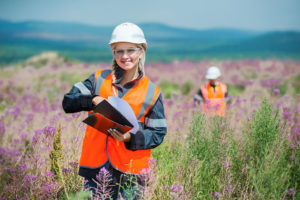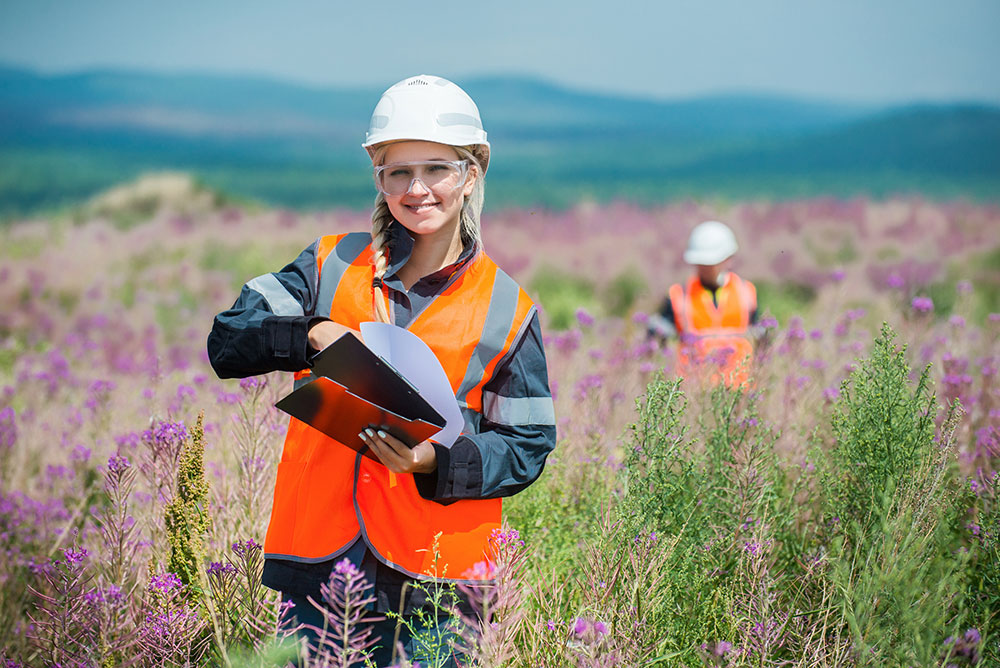Disclaimer: The information on our website is provided for general information purposes only. We make no representations or warranties of any kind, express or implied, about the completeness, accuracy, reliability, suitability or availability with respect to the website or the information contained on our website for any purpose. Any reliance on such information is therefore strictly at your own risk and we are not liable for any damages or losses arising out of or resulting from your reliance on any information contained on our website.
A conservation scientist protects, manages, and improves natural resources. They typically work with state, local, and federal governments and private landowners to safeguard the environment by discovering ways to improve and use the land. They will evaluate environments to include studying forest and soil quality.
Watch the following video to learn what a conservation scientist does:
How to Become a Conservation Scientist
Conservation scientists need a minimum of a bachelor’s degree in forestry or a related field like environmental science, agricultural science, or rangeland management. The bachelor’s degree programs should include biology, ecology, sustainability, climate control, and forest resource management courses. Some conservation scientists go on to get a master’s degree or Ph.D. Employers generally seek applicants with degrees accredited by the Society of American Foresters. There are different types of conservation scientists as well, such as conservation land managers, range managers, or soil and water conservationists. However, no matter your route, this same path will take you there. Learning technology skills such as remote sensing, forms of computer modeling, and Geographic Information Systems technology (GIS) can also be beneficial.
In addition, volunteering and hands-on experience will also be helpful. Colleges or non-profit organizations are good places to look for these opportunities. Environmental, wildlife or any conservatory programs or internships are beneficial. Check out National or State Parks, The Audubon Society, or other conservation organizations.
Getting licensed is not required; however, as you advance in this career field, there are exams such as the Society of American Foresters (SAF) or the Society for Range Management that allow you to earn licensure that could lead to advancement opportunities in your career leading to higher salaries down the road.
Lastly, any professional organizations or networking opportunities are encouraged to keep updated on the latest developments and news. Some online resources and publications cater to this industry as well.
Job Description of a Conservation Scientist

A conservation scientist manages conservation and forestry activities to keep up with government regulations and compliance, which includes habitat protection. They advise agricultural managers (like ranchers and farmers) on the best ways to control erosion and improve their land for agricultural purposes. He or she may regulate terms and conditions for land-use contracts and forest harvesting. They also monitor lands that have been forest-cleared to assure their future use. They must determine soil quality, damage caused by fires, and logging activities.
Conservation scientists need to use a variety of tools in their jobs such as a clinometer, diameter tapes, and increment borers or bark gauges. Remote sensing and geographic information systems (GIS) are a few other devices they need to use in their job. They must also be familiar with handheld computers and global positioning systems (GPS’s) in the use of map study.
There are many benefits to being a Conservation Scientist, and job satisfaction is at the top of the list! They help improve the environment while protecting national resources at the same time. That is awesome! The job of a Conservation Scientist also carries very low stress and they can enjoy the benefit of working indoors and outdoors. They do not get bored! In addition it has a high growth rate therefore, job opportunities are plentiful and advancement in the field are possible.
Free Teacher and Student Resources
Check out a free course for students and adults on EdX.org titled From the Ground Up: Managing and Preserving Our Terrestrial Ecosystems. According to EdX.org this course covers:
- The factors that determine the resilience of an ecosystem
- Its susceptibility to human activities and climate change
- What events will fundamentally alter an ecosystem and its ability to support extant life?
- Preservation and management in the Brazilian Amazon, Bhutan, and other regions
- How communities and policymakers can preserve local ecosystems
Conservation Scientist Career Video Transcript
When today’s farmers and ranchers need help with their farmland, they count on conservation scientists to help resolve problems with soil conservation or range management. Working in this field often means literally working in a field! Conservation scientists usually start by analyzing how land-use patterns contribute to problems identified by farmers, such as overgrazed rangeland, soil erosion, or a shortage of water reservoirs for cattle.
These scientists review the results of lab work on soil samples. They record, analyze, and map data to formulate plans that will correct problems without endangering the environment. For example, using better plowing and planting methods. They must consider laws, costs, and the time required to achieve improvement. They may put their plan into action and monitor progress, or they may follow up with others who implement their plan.
Like most jobs in scientific research, these scientists need to possess a healthy degree of curiosity, detailed knowledge of their field, and the discipline required for a trial and error approach to problems. While most conservation scientists hold a bachelor’s degree, often in natural science, a doctorate is required to lead research projects or to teach. Conservation scientists enjoy the challenge of giving nature a little extra help.
Article Citations
Bureau of Labor Statistics, U.S. Department of Labor, Occupational Outlook Handbook, Conservation Scientists.
National Center for O*NET Development. 19-1031.00. O*NET OnLine.

